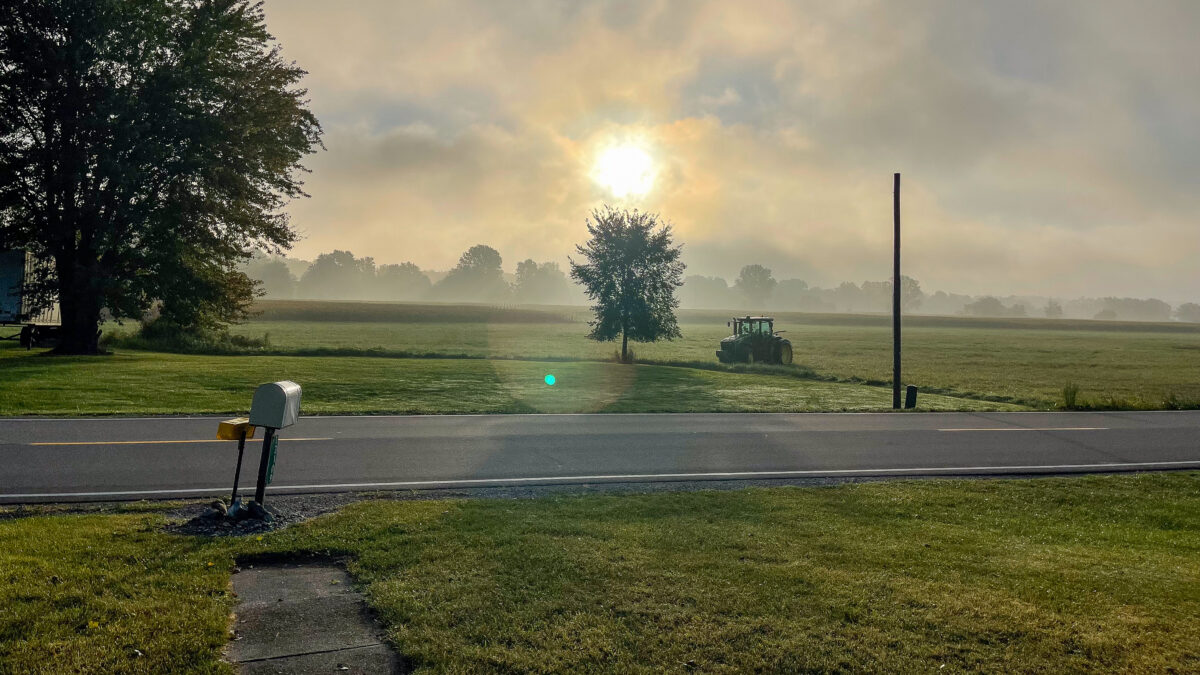Cultivating Collaboration for Sustainable Food Systems
Guest Author
Special Contributor to FB.org

photo credit: AFBF Photo, Morgan Walker
Guest Author
Special Contributor to FB.org
By Erin Fitzgerald
American farmers and ranchers wake up every day focused on their commitment to achieve food security and improve nutrition through sustainable agriculture. We recognize there’s always room for continuous improvement and share the mission to work toward the challenge of meeting the United Nation’s Sustainable Development Goal #2, which is accomplishing zero hunger. But we cannot do it alone. We need the support of agriculture, food industry professionals, health experts, scientists, economists and academics to ensure sufficient, healthy and sustainably produced food for all. We have made significant progress in creating sustainable outcomes and nourishing a global population and can continue to do so if we collaborate together across our food systems. Even in tough economic times, farmers are investing in science and data solutions, learning more about environmental sustainability and striving to leave the land in better condition for the next generation.
The recently published EAT-Lancet Commission report attempts to define what constitutes a healthy diet from our sustainable food systems. While we share the commission’s goal of continuous improvement in global food systems, we do not embrace limited pathways to attain environmental and nutritional outcomes. We believe there are multiple pathways (outlined below) and have confidence in the ability of farmers to help meet the needs of the UN’s Decade of Action on Nutrition. But the challenges before us are real. It’s imperative that we work together. Farmers and ranchers provide a critical boots-on-the-ground perspective – living and working every day to make sustainable food systems a reality.
Different perspectives across the food value chain help achieve the shared goals of food security, improve nutrition and drive environmental outcomes.
We believe there are five major pathways to address the sustainable food systems of the future:
Collaboration with Farmers: Encourage farmers and agricultural experts to collaborate with health professionals to enhance shared solutions and create much-needed research on sustainable food systems. In the United States, there are more than 3 million farmers, and their stewardship can impact the future of water, soil, land, biodiversity, carbon and nutrition outcomes.
Nourishing the Global Population: Ensure that agriculture meets the nutritional needs of a diverse and growing population. Plant and animal agriculture play important and complementary roles, not only for human health, but also in supporting cultural, social and economic well-being, and enjoyment, improving our quality of life.
Recognize Food as a Natural Resource: Recognize that food needs to always be put to its highest and best use, which means we must reduce the amount of food wasted every year. Reducing food waste and food loss across the value chain from farm to consumer will have the largest impact on sustainability. It allows everyone to partner with farmers and ranchers and do their part to create sustainable food systems.
Mitigation and Adaptation: Enable mitigation and adaptation to natural resource constraints while improving production efficiencies for yield and quality including nutrient content, food safety, environmental outcomes, resistance to pestilence and climate shocks.
Agriculture is a Solution for Ecosystem Services: Elevate the ability of agriculture to be a solution for bioeconomy challenges, provide food systems of the future, offer climate-smart solutions and deliver vital ecosystem services in the Anthropocene era (where humans have a dominant influence on climate). Agriculture carbon, derived from nature, is different than fossil fuel-derived carbon. We are underestimating the capabilities of agriculture’s soils which are currently acting as a carbon sink (storing carbon). We have the ability to store more carbon and also provide ecosystem services through integrated agricultural management systems.
To meet the momentous challenge of creating sustainable food systems together, we need diverse viewpoints at the table. Different perspectives across the food value chain help achieve the shared goals of food security, improve nutrition and drive environmental outcomes. Farmers and ranchers are the key enablers, more than just models, and make progress in environmental stewardship every day. Let’s work on collaborating on realistic pathways. We hope this is just the start of a more productive conversation.
We need every farmer, every acre and every voice to create the sustainable food systems of the future.
Erin Fitzgerald is CEO of the U.S. Farmers & Ranchers Alliance. This column was originally published as a USFRA blog post.
Top Issues
VIEW ALL